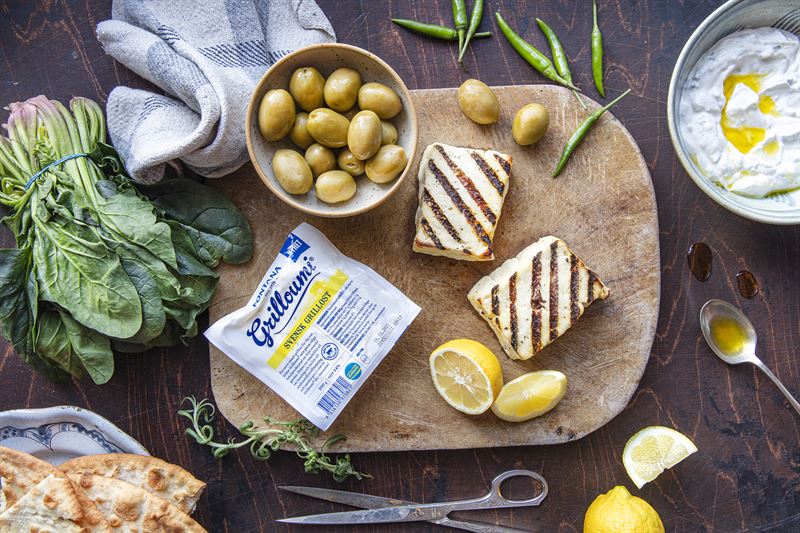EU courts have backed a Swedish rival in the Halloumi trade war after they dismissed Cyprus’ application to annul the registration of an imitator GRILLOUMI to the crown.
Cyprus has lost another halloumi battle in European courts, the second since the traditional cheese was granted the status of a Product of Designated Origin (PDO).
EU courts have ruled in favour of Bulgarian and Swedish imitators.
In this verdict, the European General Court determined no significant risk of brand name confusion between “Grilloumi” and Halloumi.
Grilloumi is produced by a Swedish company specializing in Mediterranean cuisine, claiming to offer genuine Greek grill cheese.
The Swedish company officially registered their brand name as a trademark within the European Union in 2016.
In February of the following year, Cyprus appealed this registration, citing the nation’s trademark registration of the word “halloumi” as a locally produced product.
Initially, Cyprus’ appeal was rejected by the European Union Intellectual Property Office in 2018, and a subsequent appeal met with dismissal by the Fourth Appellate Court in July of the same year.
In 2022, Cyprus sought to overturn the decision by bringing the matter before the European Court of Justice, arguing that an erroneous criterion had been employed in assessing the potential for confusion and there had been a misjudgement regarding the distinctiveness of the two words and their associated products.
With the latest decision, Cyprus has faced another setback in protecting its prized cheese.
Nicosia retains a two-month window to file an appeal, but an appeal can be pursued only concerning legal issues.
Dairy producers in Cyprus seem to be coming to terms with the new rules of the game, as authorities appear increasingly unable to fend off impostors.
In recent comments to the Financial Mirror, the head of the Cyprus Dairy Producers Association, Marios Constantinou, argued that Cyprus should no longer be dedicating resources to challenging such copycats.
Asked about the possibility of imitators displacing halloumi or taking a large portion of the market pie, Constantinou said that the island’s cheese makers should not be overly worried.
“We have a distinct product, protected by the PDO file and its strict criteria, including the clause that the cheese must be made in Cyprus with Cypriot milk,” said Constantinou.
The collective wordmark ‘halloumi’ was registered on 14 July 2000 and remains across the EU and UK. It is supposed to protect the product against any imitators in the bloc.
The line of defence was to become stronger with the approval of the PDO file in 2020.
Shielded behind the newly acquired PDO status, Cyprus’ white cheese makers and authorities believed they could make the most from the ever-growing market.
Halloumi cheese is considered the island’s ‘white gold’ worth €1.34 bln in exports from 2017 to 2021, with revenue expected to grow exponentially in the coming years.
According to the Ministry of Commerce, Cyprus dairy producers in 2022 exported halloumi worth €284 mln.







